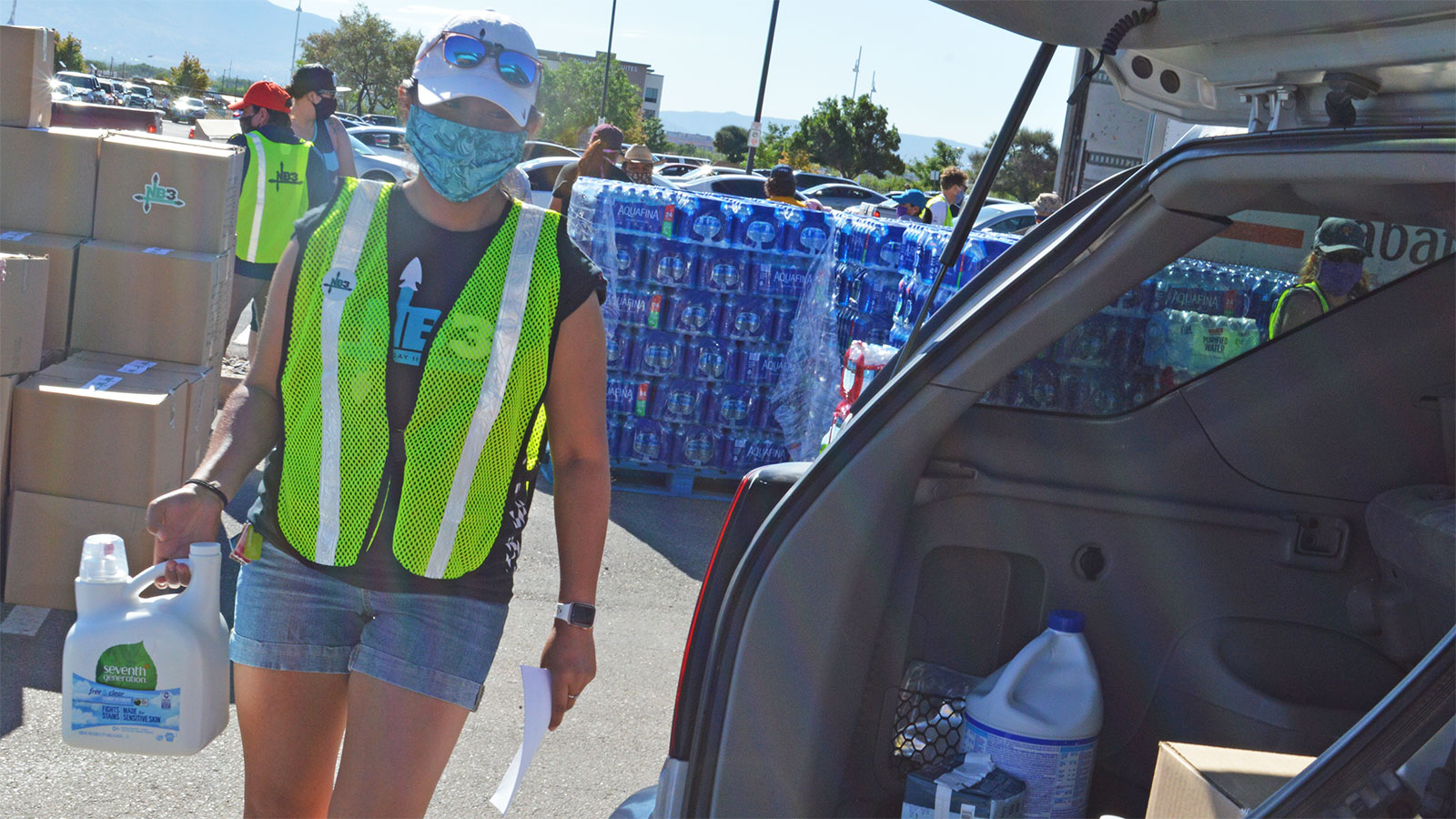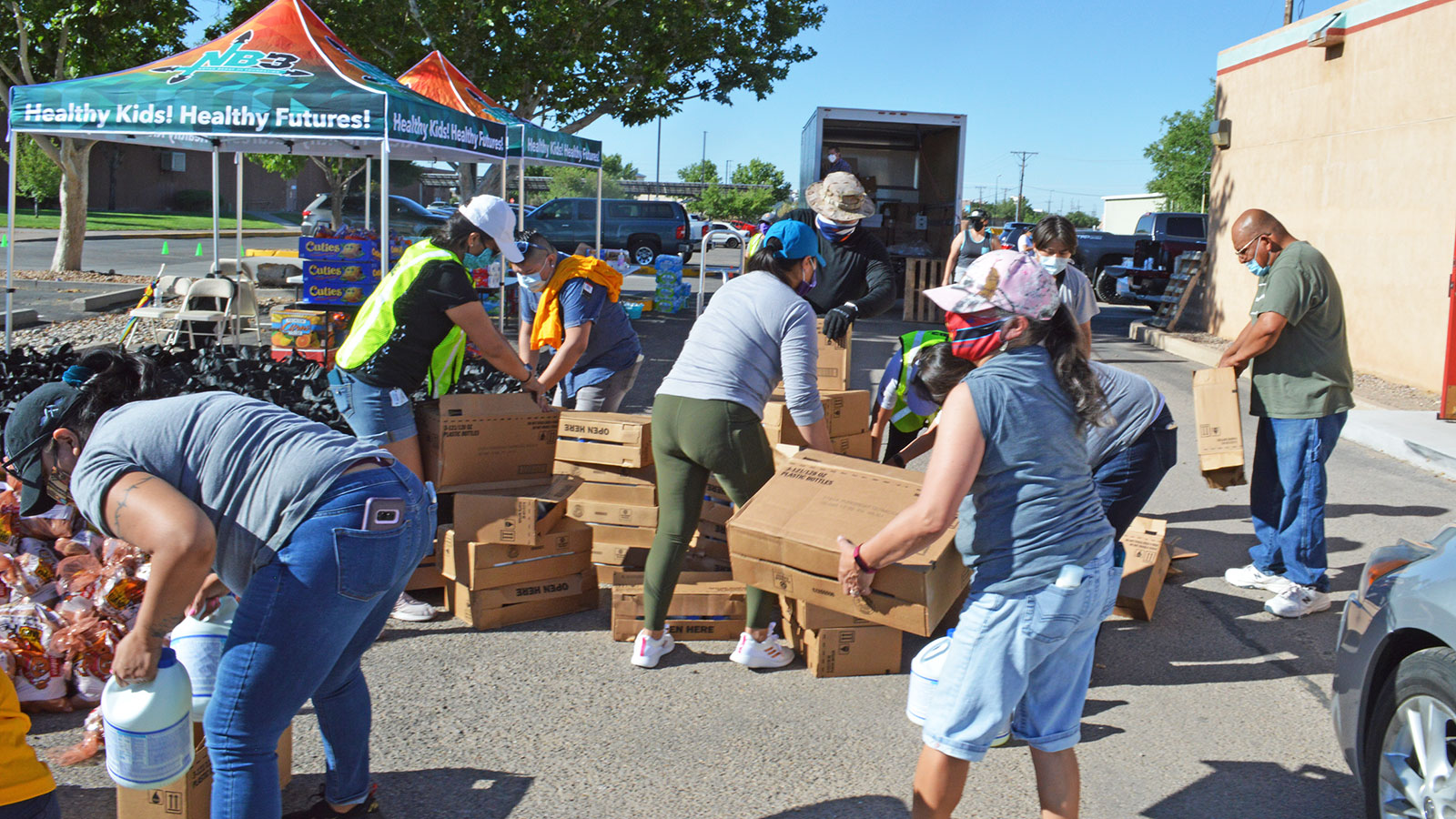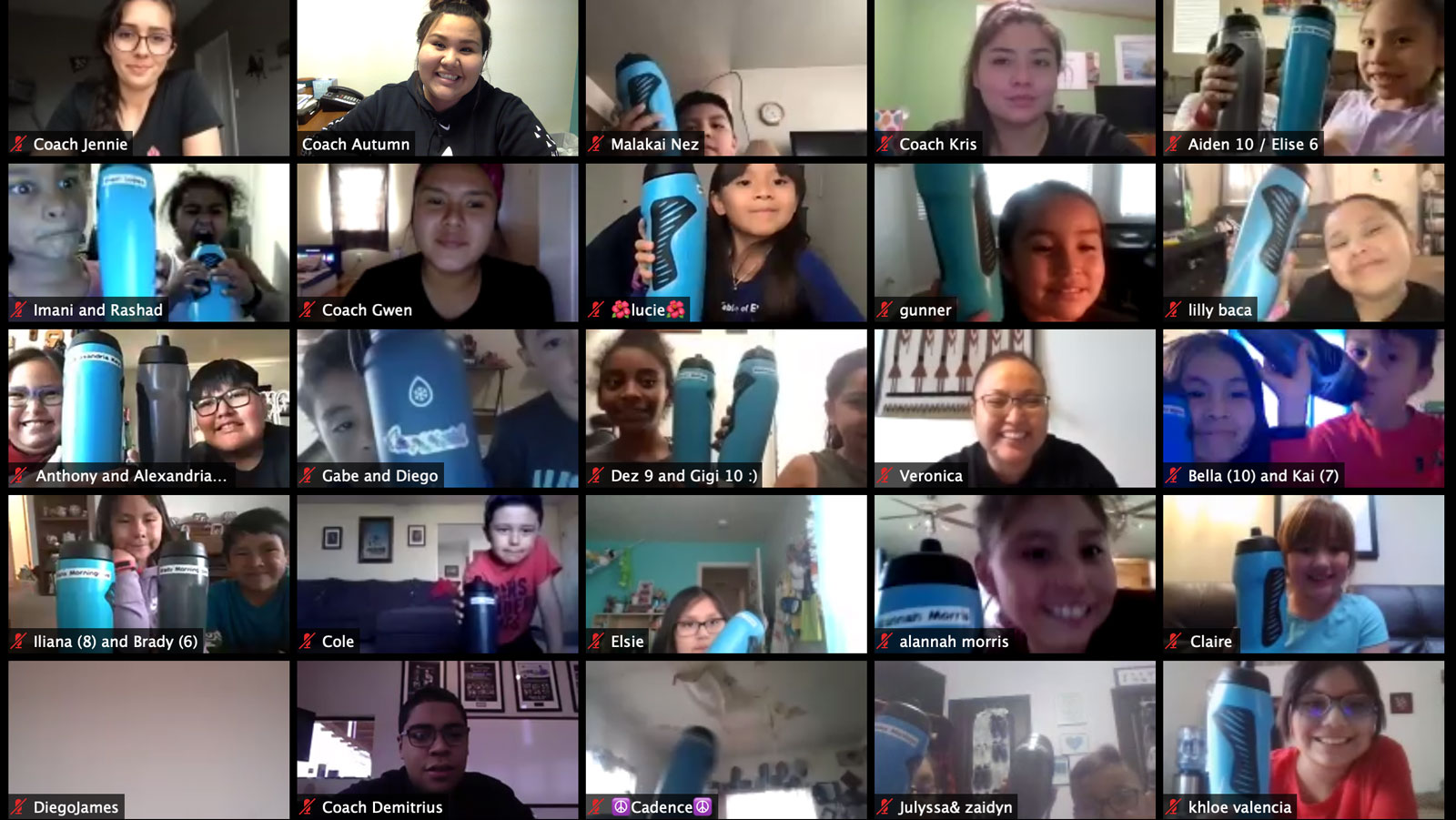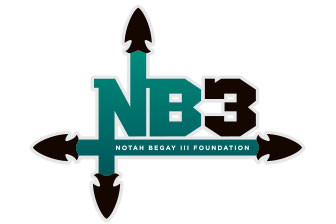Shifting Gears: Getting Food and Supplies to Native Communities in Need during Covid-19

The NB3 Foundation Covid Response Fund brought relief to Native communities and families when they needed it most. Along with the delivery of food, water and supplies, the NB3 Foundation distributed over $300,000 in grants to Native-led organizations and tribal communities providing Covid relief.
During 2020, the Notah Begay III (NB3) Foundation began the year with new ideas and ambitious plans for events and programs. When the COVID-19 pandemic shut down the state of New Mexico, it was clear that those plans needed to be reevaluated. Our team quickly shifted focus from direct youth programs to responding to the critical needs of our youth and communities.
According to the New Mexico Department of Health, Native Americans, by May of 2020, “[accounted] for 57% of the state’s cases – despite only being 11% of the population – and had infection rates 14 times that of the rest of the population.” Highlighting in our communities the underfunded health systems and food and water insecurity which all lead to underlying health conditions that make the virus worse.
Supporting Native Communities During Covid-19 – Coming Together to Help

NB3 Foundation and Albuquerque-area community partners team up to distribute food boxes and supplies for Native families in May 2020.
Through the support and donations we received through our COVID-19 Response Fund, our staff, board members and volunteers worked shoulder to shoulder packing over 67,000 pounds of food and supplies which was distributed to Native communities in need. With additional funds raised, we were able to grant over $300,000 directly to Native-led organizations and tribal communities to provide relief in their communities.
Now, with all of our response funds exhausted, we have turned back to providing direct youth programs and funding to support culturally based health prevention strategies. This pandemic is a strong reminder of the greater need to invest in the long-term health sustainability of our Indigenous youth and communities, particularly on our reservations and pueblos.
Exploring Healthy Habits through Virtual Programs

Hydration is key! NB3FIT virtual youth programming participants show off the water bottles they use to keep track of water intake throughout the day.
Our NB3FIT team, has been doing this by providing health-centered virtual programming to youth across the state of New Mexico. Our virtual programming continues to be a safe place for Native youth to learn and explore healthy habits together as they navigate these challenging times.
When the youth were asked what their favorite part of virtual programming was, some answers included: “My favorite part of programming is that I get to see you guys!” Others said, “Making healthy snacks!” and “I enjoy making crafts with you all!” The variety of responses show us that virtual programming is helping fill a variety of gaps our youth are experiencing due to the pandemic.
We’ve seen participation in our virtual programming nearly double since we started last year. Further demonstrating the need for and importance of Native-led youth programming in Indigenous communities. With the support of our donors and supporters, we are ensuring our youth receive the needed teachings, resources and supplies to sustain healthy habits long after virtual programming ends.
No matter the conditions, the NB3 Foundation will do whatever it takes to continue promoting healthy outcomes for our communities.
How You Can Help Now
If you’d like to make a donation, at any level, or bid on a very cool guitar through our annual Native Strong Comedy Slam & Jam Fundraiser (all proceeds go to the Notah Begay III Foundation), you can do so here. The fundraiser and auction are open until July 26, 2021.
Listen to a recent interview with Demitrius Payne, a participant in the NB3F Junior Golf Program and now Notah Begay III Foundation team member. He tells us how the program shaped him into the future leader he is today. Watch Here
About the Notah Begay III (NB3) Foundation
 The Notah Begay III (NB3) Foundation is a national, award-winning Native-led nonprofit leading the way to improve Native American children’s health. Raving partners with the foundation to promote their mission, ensure Native children achieve their full potential by advancing cultures of Native American community health.
The Notah Begay III (NB3) Foundation is a national, award-winning Native-led nonprofit leading the way to improve Native American children’s health. Raving partners with the foundation to promote their mission, ensure Native children achieve their full potential by advancing cultures of Native American community health.
References and data:
According to the New Mexico Department of Health, Native Americans, by the month of May, “[accounted] for 57% of the state’s cases – despite only being 11% of the population – and have infection rates 14 times that of the rest of the population.”
Kaplan, Elise, and Theresa Davis. “‘Huge Disparity’ in COVID-19 Death Rates for Native Americans in NM.” Albuquerque Journal, 31 May 2020, abqjournal. com/1461218/huge-disparity-in-covid19-death-rates-for-native-americans-in-nm.html.
- 66% of Native nonprofit organizations are providing direct services to those affected by the COVID-19 pandemic.
- 38% of Native nonprofits have reduced operations, working primarily remotely.
- Most Native nonprofits have narrowed services and added online programming.
- Native nonprofits cite needs for general operating grants, personal protective equipment (PPE) and technology to help meet operational and programmatic needs.
https://www.firstnations.org/wp-content/uploads/2020/08/Native-Nonprofit-Sector-and-the-COVID-19-Survey.pdf — First Nations Development Institute’s report The Native Nonprofit Sector and the COVID-19 Pandemic Charting a path Forward - In Arizona and New Mexico, where tribes have had high rates of COVID-19, Native American children are 3.5 times more likely to live in poverty, twice as likely to read below grade level in 4th grade, and 1.5 times more likely to be below grade-level proficiency in math in 8th grade compared to non-Hispanic White children.
- The need to attend classes at home or with social distancing, and other safety measures (e.g., face coverings, Plexiglas partitions) will likely harm AIAN children’s learning, as studies have shown they learn best through active participation, observing others, and nonverbal forms of instruction.26,33-35 In addition, more AIAN teachers, tutors and support staff are needed to support AIAN students’ learning.1,36 https://www.srcd.org/research/addressing-inequities-education-considerations-american-indian-and-alaska-native-children
